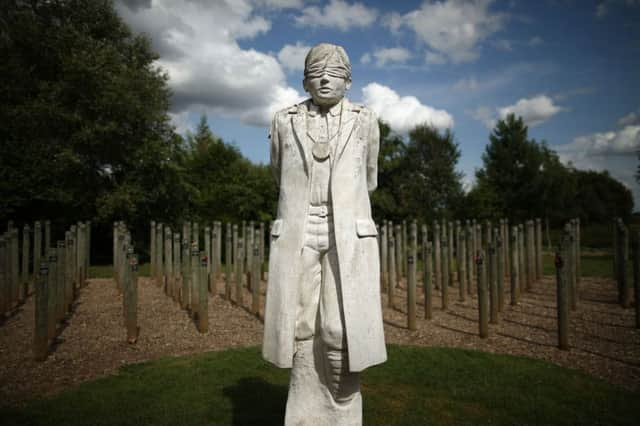Honoured at last: Leith soldier executed by his own side in World War I


William Lewis, from North Fort Street, Leith, was shot dead in 1916 in Rouen, France, after being convicted of mutiny,
He had been involved in a confrontation at Blargies prison camp in northern France during where around 70 servicemen serving hard labour sentences refused to work. Conditions in the stockade were appalling with little access to water or sanitation and many inmates suffering severe diarrhoea.
Advertisement
Hide AdAdvertisement
Hide AdAfter seeing a comrade put in handcuffs so tight his wrists bled, Lewis stepped forward to complain that the inmates were suffering cruel conditions with “filthy, lousy clothing, no soap to wash, lousy blankets, dirty mess tins, filthy tents”.
A court martial sentenced the soldier, who served with the 24 Brigade Royal Field Artillery - to death for mutiny by encouraging the group to continue their protest.
He was among the 309 soldiers granted formal pardons by the Ministry of Defence in 2006 after a campaign for those executed by their own side, often after hurried and unsatisfactory courts martial, to be declared victims of the First World War. Many of those shot dead were in reality suffering from shell shock.
Now his name - and those of two others - are to be added to the Shot at Dawn memorial in Alrewas, Staffordshire.
Advertisement
Hide AdAdvertisement
Hide AdRichard Pursehouse, a member of the Staffordshire local history group which pressed for the memorial to be expanded, said: “It was only right that the names of these three men should be commemorated.
“They deserve to be recognised in the same way as others who were shot at dawn. It would be especially poignant if we could find their family members. These men were part of the wider tragedy of the war.”
Historians have long debated how the British Army managed to avoid the large-scale mutinies that affected their French allies in particular during the industrial-scale carnage of the conflict. In 1917 alone, the French executed 50 soldiers for mutiny.